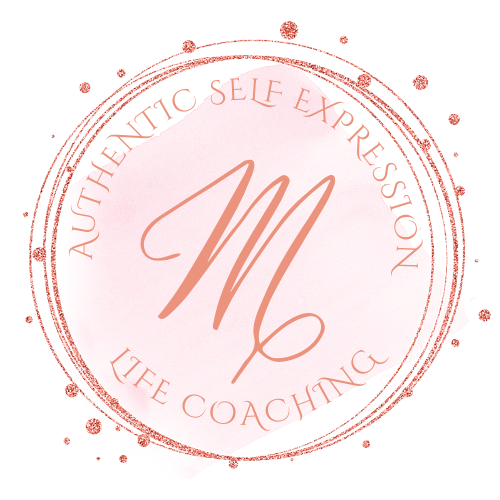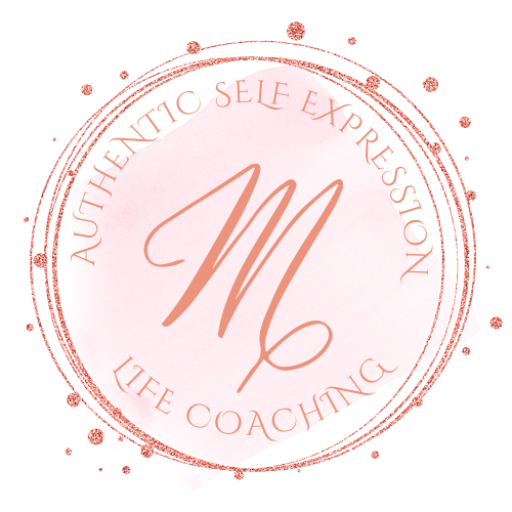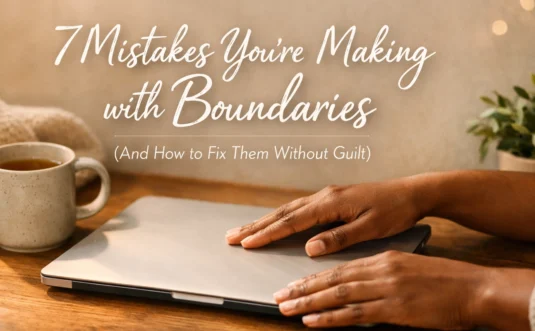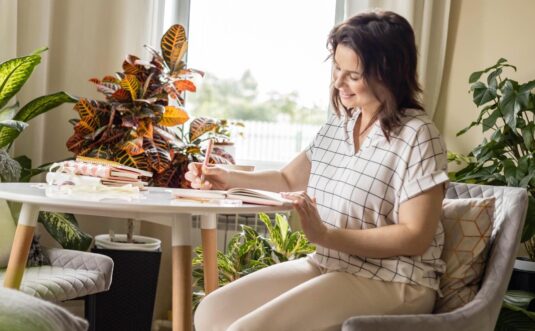There’s a kind of ache that lives in the hearts of those who’ve gone quiet. Not because they have nothing to say, but because they stopped believing their creative voice mattered.
Maybe you used to write stories that poured out of you like water, sing in the shower with abandon, paint messy watercolours that captured something true, or daydream endlessly about worlds only you could see. But somewhere along the way, you stopped. You told yourself it wasn’t good enough. You got busy with “real life.” You listened to people who said it was silly, childish, impractical, a luxury you couldn’t afford.
And now? The silence feels heavy. Like a part of you went missing, leaving behind an echo where your creative voice used to live.
This is for the part of you that still wants to speak. For the creative voice beneath the doubt, the one that never truly left, only waited. For the dreams that refuse to die, even when you’ve tried to bury them under responsibility and reason.
Why We Lose Our Creative Voice: Understanding the Silence
You didn’t mean to lose your creative voice. It happened slowly, like erosion, so gradual you barely noticed until one day you realised you couldn’t remember the last time you created something just for the joy of it.
The Slow Fade of Creative Confidence
Maybe it started with a teacher who corrected your “wrong” way of drawing trees. Or a parent who suggested you focus on something more “realistic.” Perhaps it was comparing your raw, honest work to polished pieces online, or the exhaustion that came from trying to turn every creative impulse into something marketable.
At some point, it became easier to silence your creative voice than to risk being seen, judged, or dismissed. The vulnerable act of creating, of saying “this is how I see the world,” felt too dangerous for a heart that had been hurt.
How Your Creative Voice Gets Suppressed
Creative voice suppression doesn’t always look like complete abandonment. Sometimes it disguises itself as:
Perfectionism: “I’ll start when I have the perfect setup/time/skills” Comparison: “Everyone else is already doing this better”
Practicality: “I need to focus on making money/being responsible” Fear of judgment: “What will people think if they see this side of me?” Imposter syndrome: “Who am I to call myself creative?” Burnout: “I used to love this, but now it feels like work”
But here’s what I know to be true: your creative voice never disappeared. It lingers in those quiet moments when you’re alone, when something inside whispers, “I miss that part of me.” It shows up in the way you still notice beautiful light filtering through windows, or how your heart skips when you see art supplies in a store.
What Your Creative Voice Really Is (And Why It Matters)
Reconnecting with your creative voice isn’t about becoming someone new. It’s about returning to who you were before you learned to shut yourself down. It’s about remembering that creativity isn’t a luxury; it’s how your soul breathes.
Understanding Your Authentic Creative Voice
Your creative voice isn’t just about making art, though it can express itself that way. It’s about self-trust, intuition, and the courage to express what lives inside you. It’s your unique way of processing and responding to the world.
Your creative voice is the part of you that:
- Notices beauty in the ordinary moments, like afternoon light hitting a coffee cup or poetry in overheard conversations
- Feels deeply and wants to put those feelings somewhere they can be witnessed
- Imagines possibilities, even when they don’t make logical sense yet
- Longs to say, “This is how I see the world. Does anyone else feel this too?”
- Connects seemingly unrelated things in ways that surprise even you
- Finds meaning in metaphors and symbols that speak to your soul
- Dreams in colours, sounds, stories, and movements that have no words
When you silence your creative voice, life can start to feel flat, muted, like you’re living in black and white when you’re meant to experience the full spectrum.
The Impact of a Silenced Creative Voice
Living without creative expression affects more than just your art. It impacts how you show up in all areas of life. You might notice:
- Decision-making becomes harder because you’ve stopped trusting your intuition
- Problem-solving feels rigid because you’ve abandoned creative thinking
- Relationships feel less authentic because you’re hiding a core part of yourself
- Work becomes draining because you’re not honouring your creative energy
- Self-confidence erodes because you’re not practising self-expression
Reclaiming your creative voice doesn’t mean you have to publish a book or start a business. It just means you stop hiding from yourself and start honouring the part of you that sees the world differently.
How to Rediscover Your Creative Voice: Gentle Steps Forward
The return to your creative voice doesn’t require a dramatic comeback. In fact, the gentler you are with yourself, the more likely you are to sustain the journey. You don’t need perfect conditions, expensive supplies, or hours of free time. You just need to be willing to start small and trust the process.
Creating Safety for Your Creative Voice to Emerge
Before you touch a paintbrush or open a blank document, create emotional safety for your creative self. This inner sanctuary is where your creative voice can whisper without fear of criticism or judgment.
Set an intention of play over perfection. Tell that inner critic that this isn’t about producing masterpieces; it’s about remembering how to play, explore, and express. Your creative voice needs to feel safe before it will fully emerge.
Create physical rituals that signal creative time. Light a candle, make a special cup of tea, put on music that moves you. These small ceremonies tell your nervous system that this is sacred time, separate from productivity and performance.
Practical Ways to Reconnect With Your Creative Voice
1. Create Without Showing Anyone
Give yourself permission to write, draw, dance, or dream just for you. No outcome. No pressure. No audience except your own soul. This is revolutionary in a world that constantly asks “What’s it for?” or “Are you going to do anything with that?”
Start a private creative practice. Keep a sketchbook by your bed. Write morning pages that no one will ever read. Dance to your favourite song when nobody’s home. Sing in your car. Make something ugly on purpose. The goal is reconnection, not exhibition.
2. Let Yourself Make “Bad” Art
Take perfectionism off the table entirely. Make something messy, silly, incomplete. Let it be real instead of polished. Celebrate the crooked lines, the off-key notes, the sentences that don’t quite work yet. These imperfections are proof that you’re being brave.
Try setting a timer for 15 minutes and creating without stopping to judge. Draw with your non-dominant hand. Write without editing. Sing without caring if you hit the right notes. The “badness” is actually goodness in disguise because it means you’re prioritising expression over impression.
3. Listen to Your Inner Creative Voice Daily
Your creative voice is intimately connected to your intuitive voice. The more you practice tuning in to your inner knowing, the more your creativity will flow.
Journal in the mornings before the day’s noise drowns out your quiet thoughts. Sit in silence and let thoughts come without needing to control or analyse them. Take walks without podcasts or music and let your mind wander. Notice what bubbles up when you’re not trying to direct the conversation.
4. Revisit What Used to Light Up Your Creative Voice
Think back to what made you feel most alive as a child or teenager. What did you do for hours without noticing time pass? What made you feel most like yourself? Even five minutes reconnecting with that activity can unlock dormant creative energy.
Maybe you used to write poetry, build elaborate sandcastles, choreograph dances, or create elaborate imaginary worlds. You don’t need to commit to becoming a poet or dancer; you just need to remember what it felt like when your creative voice was flowing freely.
5. Surround Yourself With Creative Inspiration
Creative energy is contagious. Read poetry that makes your heart race. Visit bookstores and let yourself get lost in the possibilities. Watch films that make you feel something deep and indefinable. Listen to music that moves your body. Look at art that speaks to your soul.
When you immerse yourself in others’ creative expressions, you’re reminded of what’s possible. You’re feeding your creative voice and showing your inner artist that creativity is valued and welcomed in your life.
6. Start a Creative Voice Dialogue With Yourself
Begin asking yourself creative questions: “What wants to be expressed through me today?” “What story is my body telling?” “What colours match my current mood?” “If my day were a song, what would it sound like?”
Keep a running list of things that catch your attention: interesting cloud formations, overheard conversations, the way light falls on a wall. These observations are your creative voice taking notes, gathering material for future expression.
7. Practice Creative Voice Micro-Moments
You don’t need hours to reconnect with your creative voice. Look for tiny opportunities throughout your day:
- Doodle during phone calls
- Take a photo of something beautiful you notice
- Hum or whistle a melody that comes to you
- Choose your clothes based on how they feel, not just how they look
- Write one sentence about something that moved you today
- Rearrange something in your space just because it feels better
These micro-moments add up, reminding you that your creative voice isn’t separate from life; it’s woven throughout it.
Navigating the Emotional Journey of Finding Your Creative Voice
The return to your creative voice isn’t always easy or linear. Be prepared for a range of emotions as you reconnect with this part of yourself. Understanding what’s normal can help you stay gentle with the process.
What You Might Feel as Your Creative Voice Awakens
Awkwardness: Your creative muscles might feel stiff at first. Just like returning to exercise after a long break, there’s an adjustment period. This awkwardness isn’t a sign you’ve lost your ability; it’s proof you’re using muscles that have been resting.
Vulnerability: Creating anything authentic requires revealing parts of yourself that have been hidden. This exposure can feel terrifying, even when no one else is watching. Remember that feeling vulnerable means you’re being brave, not weak.
Grief: You might feel sadness for the time you lost, the things you didn’t create, the creative voice that went unheard. This grief is sacred. Honour it. Mourn what was lost so you can celebrate what’s returning.
Frustration: Your creative voice might feel rusty or different than it used to be. That’s because you’ve grown and changed. Your voice is evolving, not disappearing. What feels frustrating now might become your greatest strength.
Fear of judgment: Even in private creation, you might hear critical voices in your head. Acknowledge these fears with compassion. They developed to protect you. Thank them for their service, then gently set them aside.
The Beautiful Feelings That Come With Creative Voice Recovery
Aliveness: When you’re creating, you might feel more awake, more present, more fully yourself than you have in years. This is your life force energy moving through you again.
Surprise: Your creative voice might express things that surprise you, ideas you didn’t know you had, connections you didn’t expect to make. This is the magic of tapping into something deeper than your conscious mind.
Relief: Finally giving your creative voice space to breathe can feel like exhaling after holding your breath for years. You might not realise how much tension you were carrying from suppressing this part of yourself.
Joy: Pure, uncomplicated delight in the act of creating. This is your inner child celebrating the return of play and possibility.
Connection: To yourself, to something larger than yourself, to the creative force that moves through all life. You’re remembering you’re part of something beautiful and ongoing.
Overcoming Common Creative Voice Blocks
As you reconnect with your creative voice, you’ll likely encounter some obstacles. Rather than seeing these as roadblocks, view them as natural parts of the journey that deserve gentle navigation.
When Comparison Threatens Your Creative Voice
In our hyper-connected world, it’s almost impossible to create without being aware of what others are doing. When comparison threatens to silence your creative voice again, remember:
- Your creative voice isn’t trying to compete; it’s trying to commune
- What makes your work special isn’t perfection; it’s your unique perspective
- Every master was once a beginner who kept going
- The world needs your creative voice precisely because it’s different, not despite it
Try this: When you catch yourself comparing, pause and ask, “What would I create if I were the only person who would ever see it?” That’s where your authentic creative voice lives.
When Time Feels Too Scarce for Your Creative Voice
Many of us silence our creative voice because we believe we don’t have time for “frivolous” pursuits. But your creative voice doesn’t require hours; it requires intention.
- Ten minutes of morning writing can reconnect you to your creative voice
- Listening to music that moves you while you wash dishes counts as creative nourishment
- Taking a photo of something beautiful on your phone is a creative voice act
- Choosing to see your commute as time for daydreaming is reclaiming creative space
Remember: You don’t find time for your creative voice; you make time for what matters to you.
When Others Don’t Support Your Creative Voice
As your creative voice emerges, some people in your life might not understand or support this change. They might question why you’re “suddenly” interested in art, writing, music, or whatever calls to you.
This isn’t about them; it’s about their own relationship with creativity. Stay centered in your truth. You don’t need anyone’s permission to express your creative voice authentically.
Find or create community with others who understand. Online or in-person creative groups, classes, or even just one friend who celebrates your creative voice journey can provide the encouragement you need.
Deepening Your Relationship With Your Creative Voice
As your confidence grows and your creative voice strengthens, you might feel called to deepen your creative practice. This isn’t about becoming professional or productive; it’s about honouring the growing relationship between you and your creative self.
Building Rituals That Honour Your Creative Voice
Rituals create containers for your creative voice to flourish. They signal to your subconscious that this time and space are sacred, separate from the demands of daily life.
Morning pages: Three pages of stream-of-consciousness writing first thing in the morning. This practice clears mental clutter and opens channels for your creative voice to flow.
Creative voice dates: Regular solo time dedicated to feeding your creative soul. Visit museums, take nature walks with no agenda, browse bookstores, or simply sit in a café and people-watch. These aren’t indulgences; they’re essential creative voice nourishment.
Evening creativity: End your day with a creative act, however small. This could be sketching, writing one paragraph, humming a melody, or simply reflecting on the creative voice moments you noticed throughout the day.
Learning to Trust Your Creative Voice Instincts
As you spend more time with your creative voice, you’ll start to recognise its rhythms and preferences. Some days it wants to be loud and bold; others it whispers softly. Some seasons call for expansion; others for going inward.
Trust these rhythms instead of fighting them. Your creative voice knows what it needs better than any external schedule or expectation.
Honour your creative voice seasons: There are times for generating new ideas and times for refining existing ones. Times for bold experimentation and times for gentle practice. All of these are necessary and valuable.
Follow creative voice curiosity: When something sparks your interest (a technique, a subject, a style), follow that thread. Your curiosity is your creative voice compass, leading you toward what wants to emerge through you.
Practice creative voice courage: Your voice will grow stronger each time you choose authenticity over approval, expression over perfection, truth over trends. Small acts of creative voice courage build the foundation for larger ones.
The Ongoing Journey: Your Creative Voice Coming Home
You were never truly blocked. You were protecting something tender, a creative voice that had been hurt and needed time to heal. But that protective silence has served its purpose. Now, that part of you is ready to speak again, not in loud declarations, but in soft whispers. One word at a time. One breath. One page. One brushstroke.
Recognising When Your Creative Voice Returns
As your creative voice strengthens, you might notice subtle but significant changes:
- Colors seem more vivid
- You find yourself humming spontaneously
- You notice beauty in unexpected places
- Ideas come to you in the shower, on walks, in quiet moments
- You feel more comfortable with uncertainty and possibility
- You catch yourself daydreaming without guilt
- You trust your instincts more readily
- Life feels more alive, more dimensional
These aren’t small changes; they’re evidence that you’re remembering how to live as a whole person, with your creative voice welcomed and expressed.
Your Creative Voice as Spiritual Practice
Reconnecting with your creative voice is ultimately about coming home to yourself. It’s a practice of radical self-acceptance, of trusting that what wants to emerge through you has value simply because it’s yours.
Your creative voice doesn’t need to save the world or make you famous. It just needs to be heard by you, first and foremost. In the act of expressing what lives inside you, you’re participating in the ongoing creation of the world, adding your unique thread to the vast tapestry of human experience.
A Gentle Reminder for Your Creative Voice Journey
There will be days when your creative voice feels strong and clear, and days when it seems to disappear again. This is normal. Creativity isn’t a straight line; it’s a spiral, circling back to familiar themes with new understanding each time.
Be patient with the part of you that’s scared. Let her come forward slowly. Celebrate her bravery, not just her output. Remember that every act of creative expression, no matter how small, is an act of hope, courage, and love.
And maybe, in this quiet return, you’ll remember what it feels like to be fully yourself again. Maybe you’ll discover that your creative voice was never really lost; it was just waiting for you to remember how precious it is, how necessary, how beautifully, uniquely yours.
The world needs your creative voice. Not a polished, perfected version, but the real one, with all its trembles and truths. Your creative voice is your gift to yourself and to all of us who are waiting to see the world through your eyes.
Come home, dear one. Come home to the part of you that never stopped believing in beauty, in possibility, in the sacred act of bringing something new into the world through your unique creative voice.
As always, I’m here if you have a question or would like some support. Send me a quick message and I’ll get back to you as quickly as I can. Until then, take care and create something, anything, just for the joy of remembering who you are.
Ready to Go Deeper?
If you want to stop overthinking and start creating from self trust, this is exactly what we explore together inside my 1:1 coaching sessions. Let us bring your vision to life in a way that feels aligned, grounded, and completely yours. Book a Session here.
Soulfully, Maria.
https://mariaduckhouse.com | Let’s connect on Instagram
Buy me a coffee




